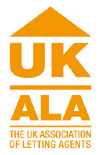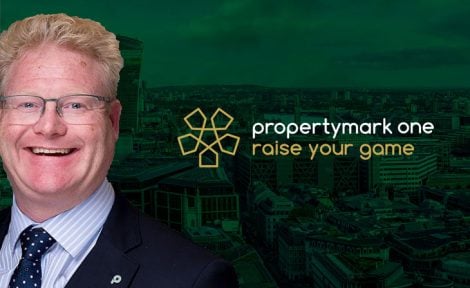Business with benefits: belong to an industry body
It can be a lonely world out there if you are an independent estate and/or letting agent. Richard Reed explores how the industry organisations can help your business.

There are six main trade bodies and accreditation bodies covering the private rented sector, with some overlap in terms of the services they offer: ARLA Propertymark and NAEA Propertymark; the Royal Institution of Chartered Surveyors (RICS); the UK Association for Letting Agents (UKALA); Safeagent and the National Landlords Association (NLA).
There are many benefits from belonging to the right organisation, ranging from free advice and legal helplines to continuous professional development (CPD) courses, seminars, networking opportunities, discounted business insurance, and much more besides.
Many letting agents also find that it’s worth suggesting their landlords join a trade body such as the NLA, so they can keep in touch with regulatory changes – potentially avoiding tenancy issues further down the line.
One of the largest changes in the lettings market has been the introduction of the Client Money Protection scheme (CMP), which came into effect on 1st April this year. It is now a legal requirement for letting agents to deposit all their clients’ money through one of these schemes to make sure landlords and tenants are compensated if an agent goes into administration.
CMP is over and above tenancy deposit protection, which has been a legal requirement since 2007. CMP schemes are offered by all the organisations above, except the NLA. Client Money Protect and Money Shield are the other two government-approved CMP schemes available.
![]() Propertymark
Propertymark
propertymark.co.uk
Propertymark was created in 2017 by the merger of five different trade bodies, including the National Association of Estate Agents (NAEA) and the Association of Residential Lettings Agents (ARLA).
As an industry body it says it aims to offer peace of mind to property buyers and prospective tenants by setting industry standards, requiring members to undergo regular training to keep up to date with legislative changes and adhere to a nationally recognised code of practice.
For members, that means not only access to training and certification, but also a major marketing tool when it comes to dealing with clients.
Benefits include:
- Specialist legal advice;
- Discounts on expert training and events;
- ‘Assured advice’ on trading standards issues;
- Updates via newsletters and factsheets;
- Free expert seminars across the UK;
- Listing on Propertymark’s ‘Find an expert’ web page and shop-window logos.
A spokesman said: “By becoming a member of NAEA Propertymark you are joining a community of like-minded estate agents across the country who want to do the best for their clients and receive support from membership in their role.”
 RICS
RICS
rics.org
Founded in 1868, the Royal Institution of Chartered Surveyors is the world’s oldest and perhaps best-known organisation for individual property professionals.
RICS says it gives people working in the industry the opportunity to improve their expertise by making the most of its latest professional standards, ethical guidance, sector-specific advice and regulatory help.
It offers the chance to connect with other members around the world and leading figures across the industry using its extensive network of events, webinars and social media channels.
The organisation also claims to enhance members’ career prospects – RICS research shows that members in the UK earn on average £16,000 more each year than non-members.
The RICS is the most powerful lobbying body in the industry, putting the case to government not just to promote the housing sector, but also to improve consumer confidence through better regulation.
Hew Edgar, RICS Head of UK Government Relations and City Strategy, said RICS was working to “bring positive change and increase public confidence in the sector, parts of which have been likened to the Wild West”.
He added: “The ever-changing policy landscape is damaging confidence in the lettings market. But the private rented sector (PRS) has the enormous potential to deliver more homes that are urgently needed.
“The need for the regulation of property agents – including those operating in the PRS – is critical in order to make the sector more attractive to landlords, and of equal importance, enhance the landlord-tenant relationship. To assist this recommended regulation, we are working with industry to develop an approved PRS Code of Practice.”
RICS membership benefits include:
- Professional qualifications – RICS provides a range of CPD courses and best-practice guidance to help maintain high levels of professionalism and develop technical and professional knowledge;
- Regular seminars across the UK on issues affecting the industry;
- Improved industry status by demonstrating that members work to the highest professional and ethical standards.
- Greater consumer confidence by knowing you uphold RICS standards, driving demand for your services and creating a competitive advantage.
- Networking with 118,000 RICS professionals worldwide.
 Safeagent
Safeagent
safeagents.co.uk
Safeagent, formerly the National Approved Letting Scheme, is an accreditation scheme rather than a trade body, it was the driving force behind the campaign for CMP to become a legal requirement.
However, as well as being an approved CMP provider, Safeagent says there are real benefits for agents who sign up with the organisation.
“The Safeagent badge is a badge of professionalism for consumers to look for and know they can trust that agent, because of the protections that agent has in place,” says Chief Executive Isobel Thomson.
“All our agents have professional indemnity insurance, redress schemes and random audits, and we monitor the handling of client money on an annual basis. It’s a mark of reassurance.
“It’s the confidence that consumers have using an agent who displays our logo that is a benefit to the agent.”
Benefits include:
- Access to client money protection scheme;
- A legal helpline;
- Legislative updates;
- Weekly newsletter.
 UKALA
UKALA
ukala.org.uk
The UK Association for Letting Agents now works in conjunction with the National Landlords Association (see below) and the two organisations present “a unified voice for landlords and letting agents in the sector”.
“We help agents to comply within an ever-changing regulatory environment, and offer practical advice on all letting matters,” said spokesman Martin Miller.
“We are a one-stop shop, making compliance with membership of a Client Money Protection (CMP) scheme and an independent redress scheme a single task.”
UKALA provides professional development and accreditation opportunities, with every employee of a member agency having access to a personal CPD record. It also negotiates commercial deals with trusted suppliers at preferential rates.
Benefits include:
- Business and professional development through company and individual training, including free online e-learning modules and discounted courses;
- A free telephone advice line, staffed by industry professionals;
- An online technical library;
- Marketing services to promote individual agencies to both landlords and tenants.
- Regular newsletter;
- Discounted insurance policies.
NATIONAL RESIDENTIAL LANDLORDS ASSOCIATION (NRLA) 2020
As The Negotiator goes to press, an interesting merger has taken place in this sector: The National Landlords Association (NLA) and the Residential Landlords Association (RLA) have announced that they will merge on 1st January 2020. The organisation will then be known as The National Residential Landlords Association (NRLA).
The new organisation will have a membership of more than 80,000 landlords making it by far the largest organisation in the sector.
Its members will own and manage half a million properties, about 10 per cent of the private rented sector. It will officially launch on 1st January 2020.
Benefits for agents
While the two organisations and thus, the new organisation, is and will be for landlords, lettings agents can benefit from encouraging their landlords to be members. The merger makes it easier (although that was not, presumably, the main intention) and even more useful, for lettings agents to work with members of the new NRLA as it will represent and assist 80,000 landlords who believe in running a professional business.
Agents should definitely recommend their landlords to belong to the new organisation. Landlords who are aware of their legal responsibilities generally pose fewer potential problems for agents.
The current NLA spokeswoman, Suzanne Muth says its free advice line is one of the benefits that members find most useful.
“If any of our members find themselves in a situation where they are not sure what their best course of action is, they can give our advice line a call and find out exactly what the best practice advice is,” she says.
“We also run courses, including a foundation course, which is a one-day course that goes over the basics of being a landlord, and everything they need to know. It’s always good to make sure you are doing the right thing, especially since things in the industry change quite rapidly,” she says.
“Our members find our meetings really useful as they are kept up to date with all the changes and it’s also a really good networking opportunity. Being a landlord can be a bit isolating at times,” adds Suzanne.
There are other benefits, too. “When you are marketing your properties to prospective tenants it’s always good to show you are a member of a trade association because it means you are interested in doing the best possible job as a landlord and demonstrates that extra level of professionalism.”





